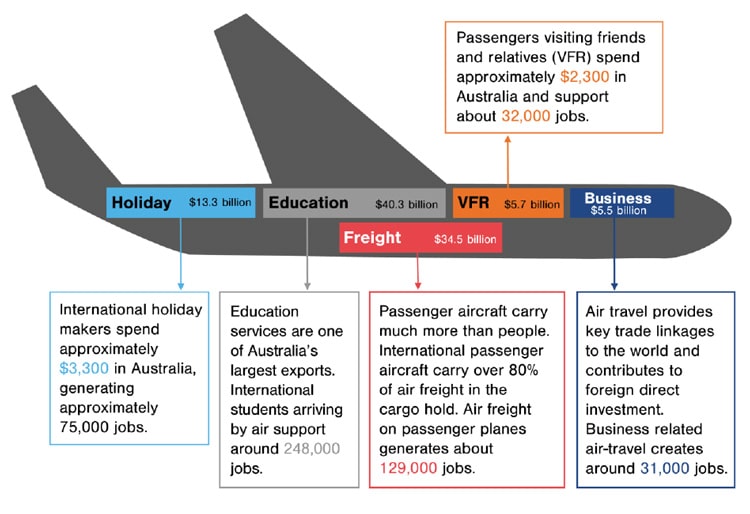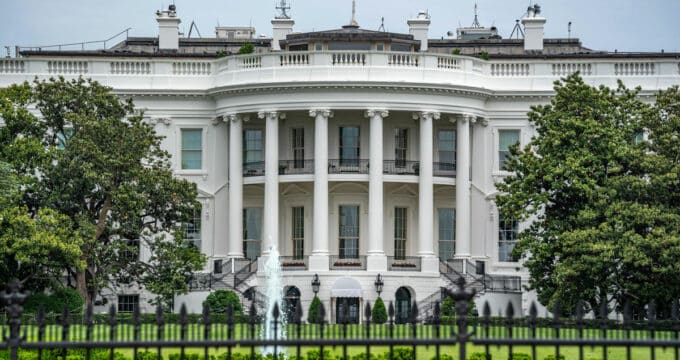Australia: Growing frustration at continued border closures for international students
- The Australian government says international borders will remain closed to foreign students for the foreseeable future but leaves the door open for Australian educators to come up with a plan to establish and fund dedicated quarantine facilities which might then allow students to fly in
- The news is accompanied by the latest enrolment data from the Department of Education, Skills and Employment which indicates that international commencements in Australia fell by 22% in 2020
- New COVID-related financial relief funds are soon to be announced for the country’s tourism operators, and the international education sector is advocating for a similar support package
- A Business Council of Australia analysis shows that international students contribute a massive portion of overall airline and tourism revenues
Australian Prime Minister Scott Morrison remains committed to reserving his country’s COVID quarantine facilities for Australians returning home – and will not allocate space in such facilities for international students until at least the end of April.
This effectively means that international students cannot fly into Australia to begin or resume studies because they cannot complete mandatory quarantine, and that any Australian education programmes they might want to enrol in will be delivered remotely (online or in partner institutions abroad) for the time being.
While the government will not allocate space in its quarantine facilities for international students, Prime Minister Morrison did say that he would be open to the prospect of the education sector establishing private quarantine facilities for incoming students. He added:
“We have always been happy to work with the international education sector if they want to put in place supplementary self-funded quarantine arrangements and flight arrangements. That has always been there for the international education industry, the large universities and others to go down that path. They haven’t chosen to go down that path. Our focus has remained on the responsibilities we have as a Commonwealth.”
Reaction in the industry newsletter Campus Morning Mail was blunt, and points to the need for the support of both national and state governments for any safe arrival plan: “Given dual state-commonwealth responsibilities and agendas on arrivals this is a fairway from fair. The PM and premiers can rally like [tennis players] Djokovic and Nadal when they want the policy ball in the others’ court…”
Enrolments down 7% in 2020, commencements by 22%
Meanwhile, the latest data from the Department of Education, Skills and Employment shows that international enrolments in 2020 were down 7% from 2019, with ELICOS providers the worst affected (down by one-third). Higher education enrolments fell off by 5%, while the VET sector actually increased by just over 9%, possibly because students from other levels and programmes moved into VET programmes as a way of extending their stay in Australia. School enrolments fell sharply as well, down nearly 20% compared to the year before.
Naturally, enrolments did not decline as much as commencements (international students enrolling in Australian education for the first time) since students already progressing in their Australian programmes would have ample motivation to keep on track towards graduation. Commencements fell by 22% in 2020, and that decline in the number of programme starts is expected to take a greater toll on overall enrolments in 2021.
Last month, Universities Australia announced that university job losses amounted to 17,300 in 2020, and revenues fell by AUS$1.8 billion (US$1.4 billion) compared with 2019. Another AUS$2 billion loss is projected for 2021.
Tourism sector to be offered relief
Australian airlines, small (often family-owned) tourist service operators, and accommodation providers will soon be able to access a new source of government money and loans allocated just for the tourism sector’s COVID-related hardships. The new package is being created to provide some ongoing support in the absence of the AUS$90 billion wage subsidy programme JobKeeper, which ends on 28 March. Over the past 12 months, domestic passenger flights fell by 41 million as a result of rolling state border closures, and overseas flights have obviously been even more disrupted given Australia’s long-closed national borders. Overall, the Business Council of Australia (BCA) has determined that Australia is losing AUS$319 million a day in domestic and international air travel.
The government says the new financial relief package may only have to be provided for a short while, given that tourism-related businesses in Australia could soon see an uptick in customers. This is because as the population of vaccinated Australians begins to grow, confidence in travelling within Australia will likely build in tandem.
But Australian universities and schools – most of which haven’t been able to access JobKeeper due to not meeting eligibility requirements – won’t see that same kind of relief given that their business is dependent on students coming in from overseas. With international borders closed to these students, a recovery for the sector cannot begin. And the longer they remain closed, the longer the recovery will take given the lower numbers of students in the system. As Universities Australia Chief Executive Catriona Jackson has noted,
“Continuing border closures mean universities face the double whammy of fewer returning students in 2020, and reduced numbers in 2021. The cumulative impact won’t be felt just in 2020 and 2021, but for years to come.”
A sense of neglect
Frustration is mounting at the government’s reluctance to create a safe travel corridor for international students and to provide targeted financial relief for the thousands of students – and billions of dollars – that Australian educators are losing due to COVID travel restrictions. In its report on the staggering impact of COVID on Australia’s airline industry, the BCA notes that international students who normally fly into Australia are a large part of the country’s airline and tourism revenues:
“International students arriving by air support 240,000 jobs in the country and education exports are worth AUS$40.3 billion. On average, international visitors such as tourists, business travellers and short-term students spend about AUS$5,200 per trip each in Australia. Chinese travellers about AUS$9,300. By contrast, Australians holidaying at home spend about AUS$700.”

The BCA recommends that borders reopen with safe processes in place as soon as possible:
“Other countries are opening up their international aviation in a COVID-safe way. We can’t afford to be left behind and miss out on opportunities to establish safe travel corridors with other low-risk countries who have also managed the virus well. This would generate AUS$20.5 billion for Australia over a 12-month period. We support National Cabinet adopting a strategy for increasing international travel based on a strategy to gradually and safely re-open borders.”
For additional information, please see:
Most Recent
-
ICEF Podcast: Together for transparency – Building global standards for ethical international student recruitment Read More
-
New analysis sounds a note of caution for UK immigration reforms Read More
-
The number of students in higher education abroad has more than tripled since the turn of the century Read More
















